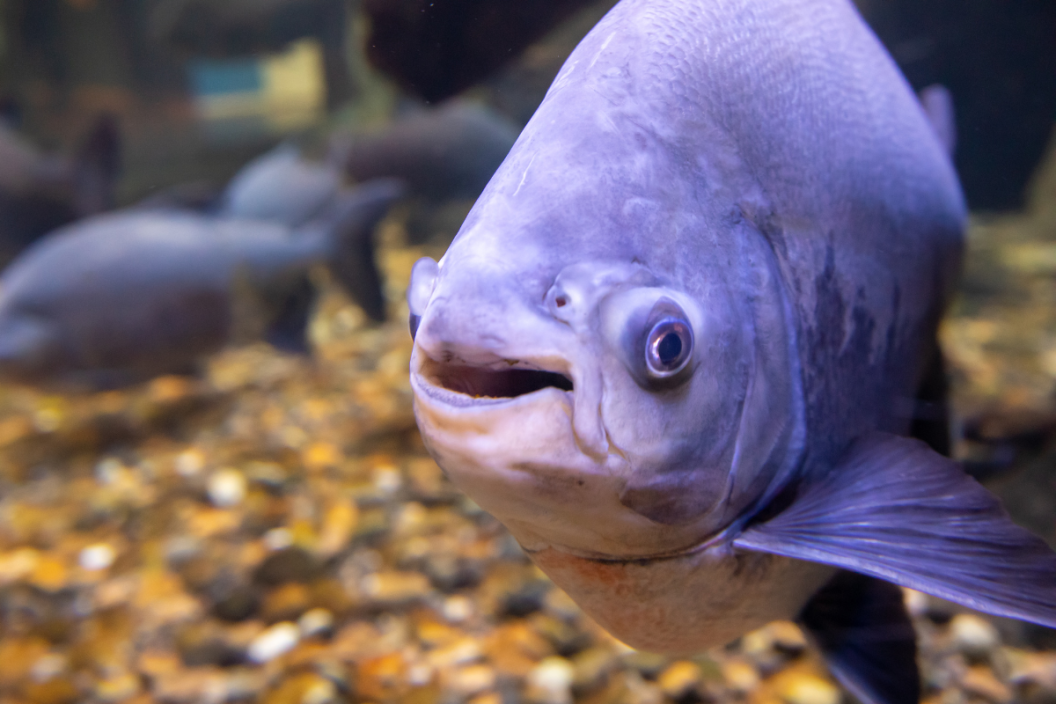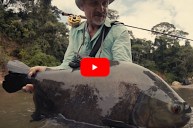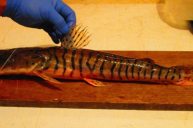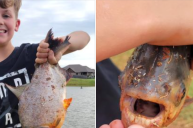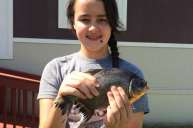A teenage angler in South Carolina was fishing for striped bass at his favorite lake, but he didn't hook one. Instead, he pulled up something much more rare—and scary-looking: a South American pacu, an invasive cousin of the vicious freshwater carnivore, the piranha.
An avid fisherman, Drew Patrick, 15, has been fishing at his family's go-to spot in northwest South Carolina, Lake Hartwell, every week of the summer for years, he told South Carolina outlet WYFF-TV. But he's never seen a fish like the pacu. Curious, he took his catch to the South Carolina Department of Natural Resources officials who confirmed its species.
While North America isn't their natural habitat, pacus are aquarium purchases who outgrow their tanks and, unfortunately, are illegally released in waterways like Hartwell, a reservoir which encompasses 56,000 acres. SCDNR Chief of Freshwater Fisheries Ross Self told WYFF-TV, "It's unusual, but not entirely uncommon."
Unlike their cousins, pacus are not a threat to humans. Instead of razor-sharp teeth, pacus have strong jaws filled with flat teeth known for being human-like. While they can't hurt people, if pacus spawn, they can threaten local fish life. The exotic fish carries parasites and competes with native fish for food and space. In Florida and Texas, pacus have breeding populations and are also found in Hawaii, California, and Massachusetts, among other states, due to people releasing pets into the wild.
Self said the non-native species are not known for spawning in Upstate lakes and are not currently a threat to South Carolina fish species. However, he emphasized they are illegal, adding, "it is a violation of state law to release these species into waters."
Anyone caught releasing non-native fish into the water will be prosecuted. However, catching offenders as they release fish into the water is a Herculean task. Self said a pacu is caught once every three or four years, with the first fish caught in Lake Wylie in 2003.
That rule is fine by Patrick, who plans on keeping his pacu catch. The unique fish will likely be mounted and hung in his barn, preserving the special memory forever.
